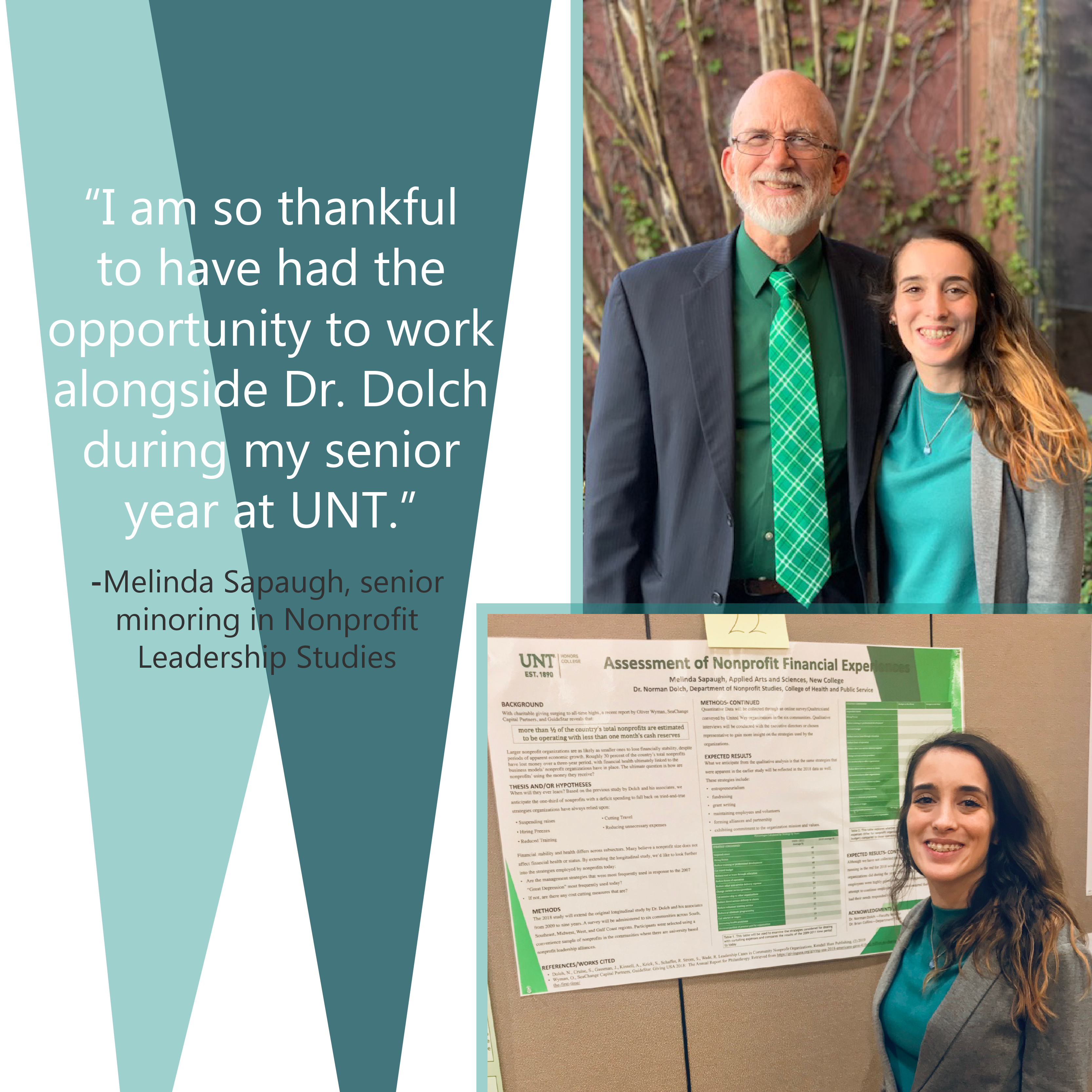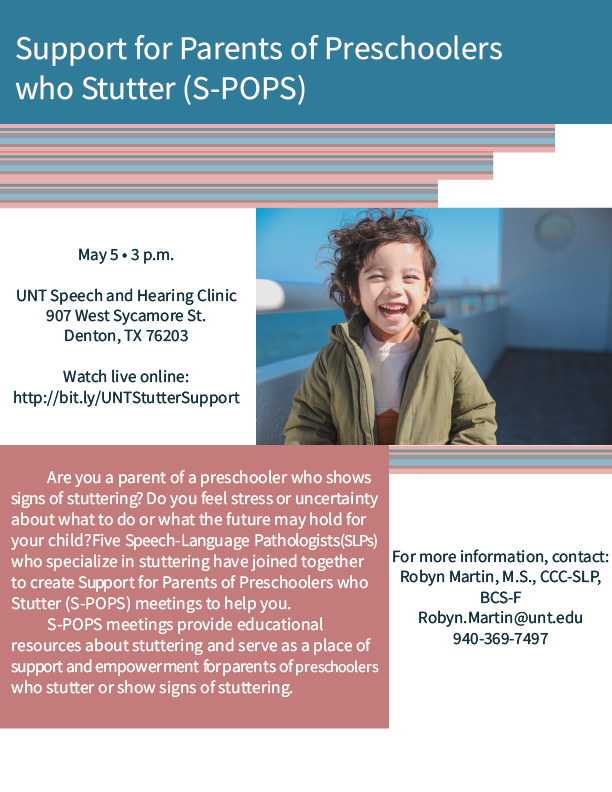Nonprofit Leadership Studies student selected as UNT undergraduate research fellow presents at 2019 UNT Scholars Day
 Melinda Sapaugh worked under the mentorship of Dr. Norman Dolch, adjunct professor in the UNT College of Health and Public Service Department of Public Administration.
Melinda Sapaugh worked under the mentorship of Dr. Norman Dolch, adjunct professor in the UNT College of Health and Public Service Department of Public Administration.
DENTON (UNT), Texas – Melinda Sapaugh, a senior at the University of North Texas who is minoring in Nonprofit Leadership Studies in the College of Health and Public Service (HPS) Department of Public Administration, presented research she completed as a UNT Undergraduate Research Fellow at UNT Scholars Day on April 2.
“I am so thankful to have had the opportunity to work alongside Dr. Dolch during my senior year at UNT,” Sapaugh said. “My research extends the original three-year longitudinal study by Dr. Dolch and his associates to nine years and will examine which strategies nonprofit organizations implemented in 2018 comparing them to strategies used by nonprofits following the 2007 economic recession. I am so excited we were able to present the research we’ve compiled thus far at the University’s Scholars Day this last Tuesday and am looking forward to the continuation of this study.”
In her recent findings, she noted that more than half of the country’s nonprofits are estimated to be operating with less than one month’s cash reserves and data shows that they will most likely rely on the following strategies:
- entrepreneurialism
- fundraising
- grant writing
- maintaining employees and volunteers
- forming alliances and partnerships
- exhibiting commitment to the organization’s mission and values
Dr. Laura Keyes says Sapaugh is another shining example of the stellar students who are part of the Nonprofit Leadership Studies Program and is glad she was able to be part of a mentorship while at UNT.
“We are really proud of Melinda and her research accomplishments,” said Dr. Laura Keyes, undergraduate coordinator of the Nonprofit Leadership Studies and Urban Policy and Planning programs in the Department of Public Administration. “Her findings are an important contribution to our knowledge of volunteer management. We encourage all undergraduates to seek out this opportunity to work directly with faculty on research that has important implications to our fields of nonprofit management and urban planning.”
Dr. Neale Chumbler, dean of the college, says it’s important for undergraduate students to have the opportunity to work closely with faculty on research.
“We are a tier one institution and we want to make sure our students receive an education indicative of that designation, thereby integrating them into robust research activities,” Dr. Chumbler said. “In HPS, we strive to make these innovative research opportunities available as part of our student-centered education so our graduates leave here with the skills that make them career-ready and allow them to stand out when heading into today’s fast-paced workforce.”
For more information on Nonprofit Leadership Studies, visit nps.unt.edu or for Urban Policy and Planning, visit upp.unt.edu.
- Non Profit Leadership


 The group is meant to help reduce feelings of uncertainty and isolation for parents of preschoolers who stutter.
The group is meant to help reduce feelings of uncertainty and isolation for parents of preschoolers who stutter. The data looks at education, race and gender in relation to opinion of capital punishment.
The data looks at education, race and gender in relation to opinion of capital punishment.